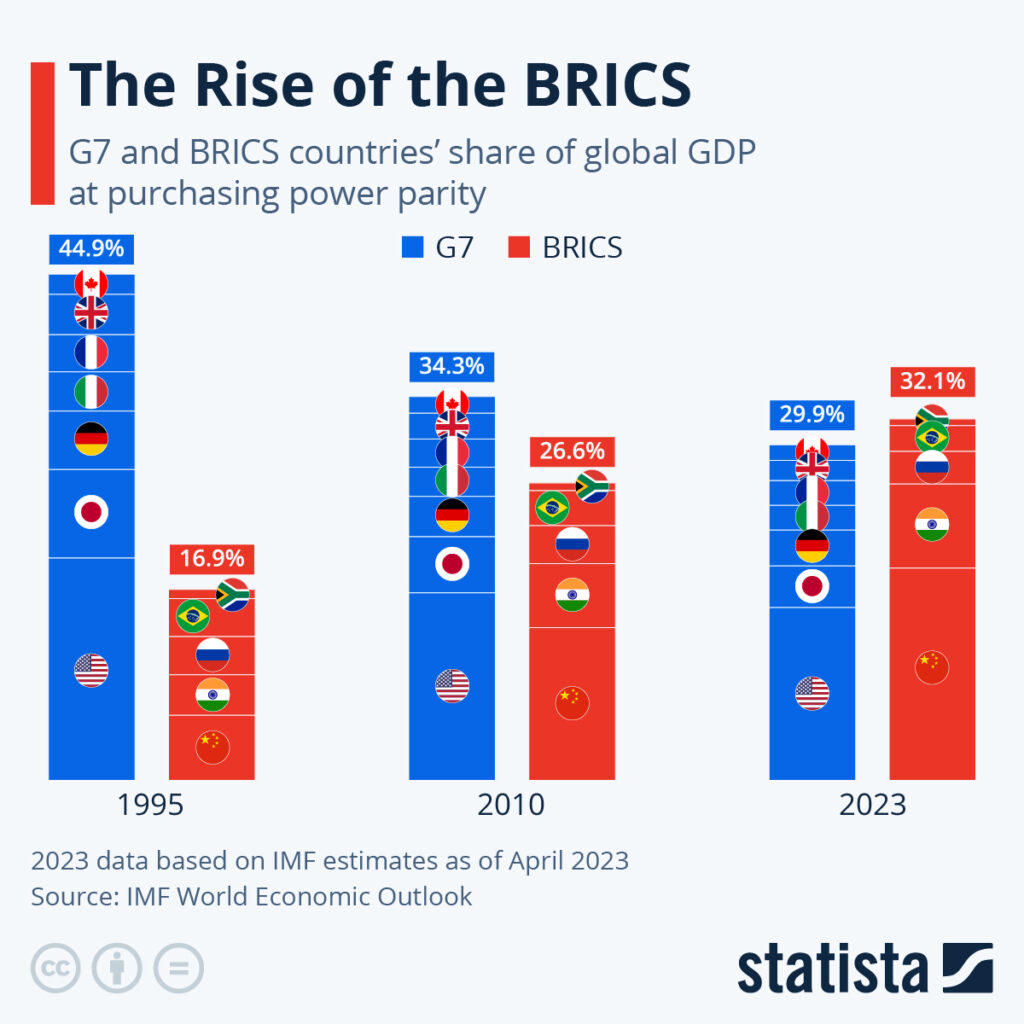
The BRICS alliance, a group of emerging economies including Brazil, Russia, India, China, and South Africa, is emerging as a significant challenge to the global power of the United States. This geopolitical case study explores the reasons behind the alliance’s growing influence and its potential to reshape the world order.
The Growing Economic Clout of BRICS
The BRICS alliance is a formidable economic force. By 2025, the combined GDP of the BRICS nations is projected to surpass that of the G7 countries, signaling a major shift in global economic power. This growth is driven by several key factors:
- Challenging the US Dollar: The alliance is actively working to reduce the dominance of the US dollar in global trade. It is promoting trade in local currencies and exploring the creation of a unified BRICS currency. A new platform, “BRICS Bridge,” is being considered to facilitate direct, blockchain-based transactions, bypassing Western financial systems.
- Creating a New World Order: The BRICS nations have established the New Development Bank (NDB) as an alternative to the World Bank and the International Monetary Fund (IMF), which are often seen as being under US influence. The NDB provides loans for infrastructure projects in local currencies, offering a new avenue for development for emerging economies.
- Expanding Influence: The recent inclusion of oil-rich nations like Saudi Arabia and the UAE as “BRICS Plus” members has further strengthened the alliance, giving it greater control over global oil and gas reserves.
Limitations of the BRICS Alliance
Despite its growing power, the BRICS alliance is not yet in a position to fully replace the United States’ global dominance. Several factors limit its potential:
- The US dollar remains a trusted currency during global crises.
- Deep divisions and a lack of trust exist among some BRICS members, particularly between India and China.
- The United States maintains overwhelming military superiority.
- The NDB’s lending capacity is still significantly smaller than that of the World Bank.
In conclusion, while the BRICS alliance presents a significant challenge to the United States’ global power, it is not yet capable of fully replacing it. It provides a comprehensive overview of this complex geopolitical issue.